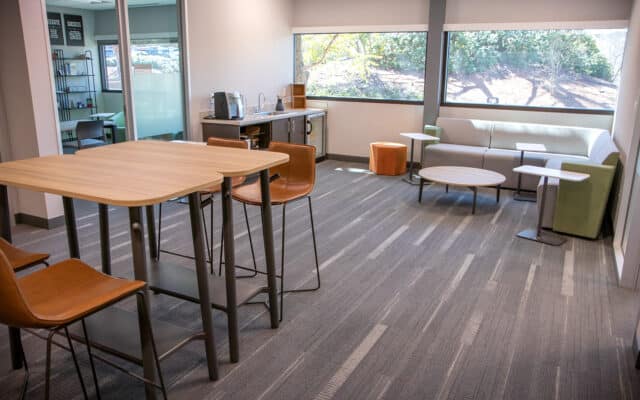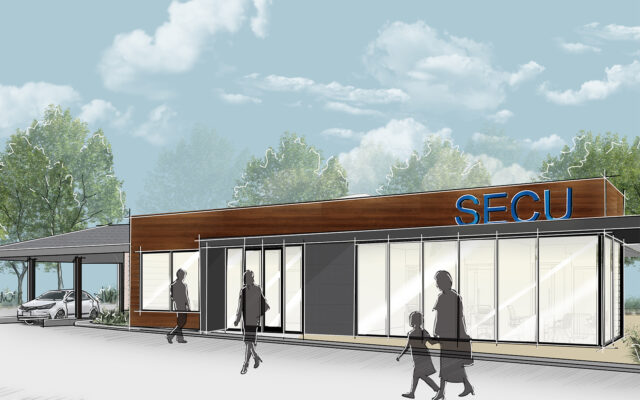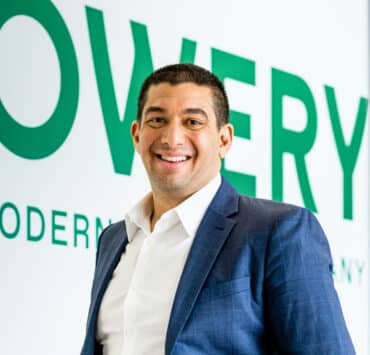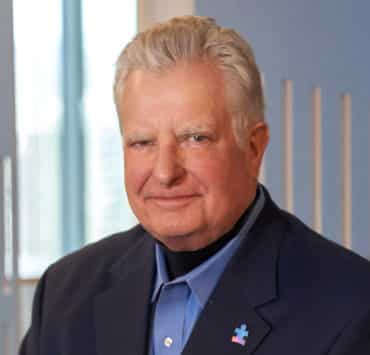|
Getting your Trinity Audio player ready...
|
The COVID-19 pandemic upended how people worked, and, in its wake, companies are reassessing the amount of office space they need and how that space is designed. State Employees’ Credit Union (SECU) in North Carolina, the second largest credit union in the US, owning approximately 3.1 million square feet of property, is one notable organization carefully scrutinizing all of its physical assets after the pandemic.
Jonathan Crane, senior vice president of facilities services for the not-for-profit organization serving North Carolina state employees and their families, says COVID has been a catalyst for a deep recalibration of space needs. It’s clear that old models where most people worked in an office every day and had assigned cubes or offices are outmoded. SECU is embracing a new vision of a more open, flexible work environment, but the plan is still developing.

Therefore, Crane says the organization is prepared to adjust space utilization when needed.
In addition to office space, Crane’s team provides support for 275 branches, 11 operations centers, and 1,128 ATM machines throughout North Carolina. Managing these assets and planning for their future use requires monitoring the new technology adoption by members, including digital and mobile banking. These trends impact decisions, such as when and where to open branches or ATMs at certain locations.
SECU has experienced a dramatic spike in the number of remote workers. Before the pandemic, about 200 employees worked from home. During the pandemic, that number jumped to over 2,000, with some form of remote capability.
Today, many of those workers have hybrid schedules. A common arrangement for employees involves at least one week working from home followed by one week in the office. Less office space is needed to support the same number of employees, and space is being arranged differently to optimize the time spent in the office.
“Before the pandemic, employees were typically assigned to specific cubicles or offices. We have started working toward a hoteling model as we review future space needs in our operations centers.”
Jonathan Crane
Crane and his team researched office spaces at one of SECU’s downtown Raleigh operations centers accordingly. To provide areas for highly focused work, two large conference rooms were split into four rooms that offered quiet and privacy. “We are also researching soundproof booths,” Crane adds.
These enclosures can be used for one-on-one interactions, for conference calls, or for a quiet space to work. The jury is still out on whether the pod concept will be adopted widely by the organization. “This is a pilot project,” Crane explains. “We want to see if the pods will be utilized before we purchase too many.”
A new downtown Raleigh branch project, currently in the design phase, offers an instructive look into future branch design. “It’s going to have a modern look and be infused with flex space,” Crane says. The teller counter will be composed of individual modular units that are attached but can be taken apart in the future if we transition to pods.
“Before the pandemic, employees were typically assigned to specific cubicles or offices,” Crane says. “We have started working toward a hoteling model as we review future space needs in our operations centers.”
This vision includes grouping people together by function in neighborhoods. In an effort to foster more collaboration, each employee finds a space in their neighborhood near the people they would need to interact with.

This will allow the branch to reduce the area dedicated to tellers, as less space is needed for these transactions in the years ahead—a real possibility given the growth of digital and mobile banking.
SECU continues to highly value its ability to provide personal services to members, so should a reduction in teller transactions occur, the organization will provide other venues for interaction with members.
For instance, the Raleigh branch could include semi-private spaces demarked by demountable partitions for members to sit with employees. These areas, apportioned with easily movable furniture, will be used for meetings between branch personnel and members that don’t require a high level of privacy.
The emphasis on space flexibility is an acknowledgement that member engagement with the credit union is in flux, and branches are likely to use the space differently in the future. One example of a new feature, Crane says, could be a digital café-like area where members could attend educational and community events or review material on products, such as estate planning resources or home equity lines of credit. Members could then speak with a representative to answer questions.
“Technology will not fully replace personal service, but it can be complimentary, so our members have more choices in how they interact with SECU.”
Jonathan Crane
“We want to meet the needs of our members through whatever channel they choose, including in-person, self-serve, online, and mobile. Future technology can be used to enhance these channels. Technology will not fully replace personal service, but it can be complimentary, so our members have more choices in how they interact with SECU,” Crane says. “Our goal is to be a trusted financial provider.”
Although the methods by which members interact with the organization may change, the relationship guidepost will not. Crane and his team will continue to ensure that SECU efficiently uses its real estate to serve relationships with members. As a result, the look and feel of its real estate will likely continue to evolve throughout the rest of his career.
Ellsworth Systems is honored to partner with Jonathan Crane and State Employees’ Credit Union, providing quality service and product solutions. We believe in consulting, ensuring the needs of our customers are met with the highest level of integrity.
Ellsworth Systems offers both Service and Sales on Electronic Security, Drive-up/Vault equipment, Desktop products, ATM/TCR’s, Managed Services, and Access Control/Monitoring services.
Honest, ethical relationship building is what creates success for Jonathan Crane, State Employees’ Credit Union, and Ellsworth Systems. Proud to be their preferred vendor!


